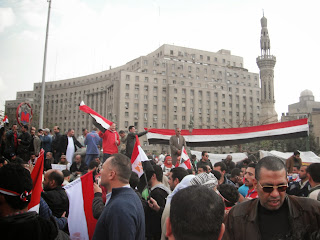 Whether you're a friend from back home in Amherst, Massachusetts, or someone I've never met, you may be wondering why I'm doing this blog, why it's called FulbrightinMontreal, and what my Fulbright project is.
Whether you're a friend from back home in Amherst, Massachusetts, or someone I've never met, you may be wondering why I'm doing this blog, why it's called FulbrightinMontreal, and what my Fulbright project is.Why do a blog?
I'll start at the beginning of this chapter of my life. My name is Carol Gray and I'm fortunate to be a Fulbright Scholar for the 2013-2014 academic year at the Loyola College for Diversity and Sustainability at Concordia University in Montreal. I decided to write this blog because a year in Montreal is such a wonderful opportunity, I want to share it with anyone who is interested. Plus, part of the mission of Fulbright is to promote cultural, educational and interpersonal exchanges, so what better way to do this than to share my photos and a few stories with you along the way. Also, I find that doing a blog helps me appreciate a country and experience it at a different level--- I see things with an eye toward writing about them, photographing them and sharing them with the world. And I create a journal (albeit, a very public journal!) that will help me and my family (particularly my 8 year old son) remember the details of this year in decades to come. I'm also a compulsive researcher about everything, so when I write about places we visit, I try to provide all the information I would like to find online myself before I visit the place to help me appreciate the visit to the fullest. Lastly, I often use my blog to give publicity about things that I find important and would like the rest of the world to know about. I'm an academic, but I'm also a social justice activist and this blog is a part of my activism.
What's in a Name:
As for the title, FulbrightinMontreal, this probably seems quite self-explanatory, and it is. However, there is a footnote to the name. My family and I spent the 2010-2011 academic year in Cairo since I had received a grant to be a Rotary International Ambassadorial Scholar for the year, getting a diploma in International Human Rights Law from American University in Cairo. While I was there, I did a blog called RotaryInCairo. My family and I remained in Cairo throughout the 18 day Revolution and I was in Tahrir Square on the day Hosni Mubarak resigned. Below are some of the many photos I took that day... little did we know then that Mubarak would resign that evening.
 |
| One of the more than 800 people who died during the 18 day uprising known as the Egyptian Revolution, Jan. 25-Feb. 11, 2011. |
 |
| Tanks in the streets were commonplace during and after the Revolution. |
 |
| Each day I went to Tahrir Square, I tried to go with an Egyptian friend. Here I am with my friend Mohammed. |
 |
| You can see the hope and pride on their faces. I wonder how all the people I saw in Tahrir Square feel now... |
What is my Fulbright Project?
My project as a Fulbright Scholar is based on an oral history project I began in Cairo right after the Egyptian Revolution in 2011. I had been volunteering with a law office doing human rights work (... I was a public defender in my earlier career...) and I got a grant from American University in Cairo to do an oral history of this inspiring organization. The organization gave me access to every one of their staff members in both their Cairo and Aswan offices to interview, from the lawyers to the secretaries and those who brought tea. I interviewed human rights workers from other Egyptian and international NGO's from anti-torture organizations to Amnesty International and Human Rights Watch, professionals who knew the high caliber and courageous work of the human rights organization I was focusing on. I also spoke to some of their clients: students, professors, journalists, protesters and others. This organization represented anyone who had had their rights violated: women, Islamists, workers, whistle-blowers, victims of torture, gay people and everyone in between.
I am here in Montreal to continue working on and hopefully complete my oral history project. I have more than 100 hours of interviews and I have found 16 interns to help me transcribe these interviews. Four of my interns are getting course credit, the rest are volunteers. They come from far and near: two from Afghanistan, one from Rwanda, one from Greece, one from France, two from Lebanon, two are students located in Washington, D.C. skyping in and emailing to participate (one of whom is Egyptian-American), one is from the island country of Saint Lucia, and the rest are Canadian. We are an enthusiastic, idealistic team and I couldn't be more grateful for their help! My hope is that the history of this organization, as a case study for the evolution of human rights in Egypt, can become a book, and, at the very least, my interviews (transcriptions, audio tapes and video tapes) will become part of archives on two continents. It is important that history remember and recognize the remarkable, heroic work of the human rights advocates in these interviews.
I am grateful to Fulbright Canada for allowing me this opportunity and to the Loyola College for Diversity and Sustainability at Concordia University for hosting me and for helping me connect with others in Concordia's Political Science Department, the Montreal Institute for Genocide Studies, and Concordia's Oral History Centre. Though I am only one month into my fellowship, I am finding this an inspiring and very supportive environment in a city that is perhaps the most multicultural city I have ever visited.




No comments:
Post a Comment